
ASU supports women in Vietnam to become academic leaders
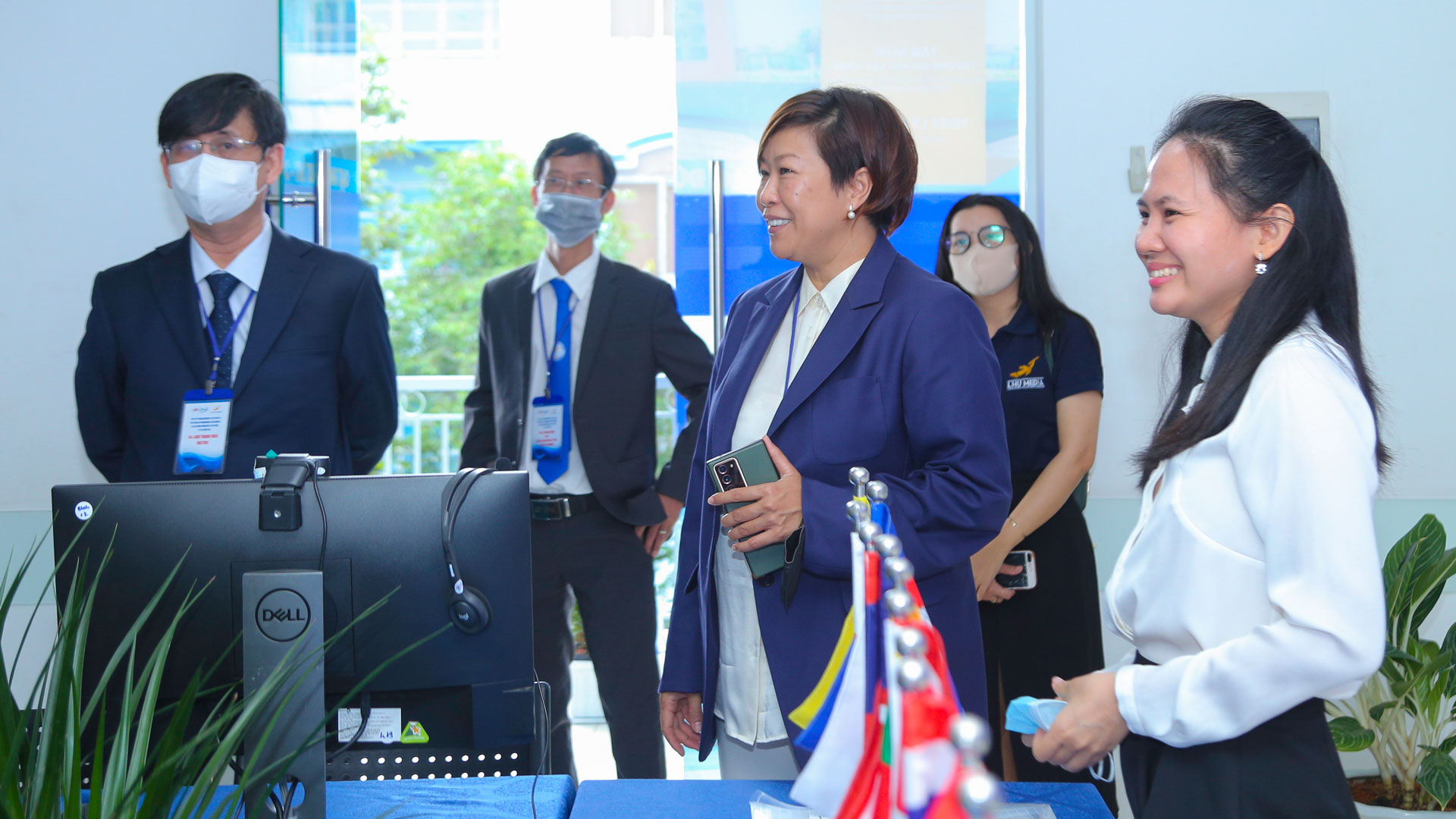
Women throughout the world often feel pulled between caring for their families, fulfilling cultural expectations and pursuing careers. However, the balance of these priorities is changing; careers — particularly in science, technology, engineering and math, or STEM fields — are becoming a more recognized focus in women’s lives.
In Vietnam, for instance, Arizona State University has become a changemaker in shifting these perspectives through diversity and inclusion efforts. As the implementing partner of the U.S. Agency for International Development-sponsored Building University-Industry Learning and Development through Innovation and Technology, or BUILD-IT, program, ASU’s Ira A. Fulton Schools of Engineering facilitates numerous events to help women get involved and advance in engineering and higher education careers.
“As people in the region learn more about the breadth of opportunities in STEM fields, and women learn more, their eyes are opened to the possibilities; they are really engaging in opportunities to advance,” says Kathy Wigal, director of global operations for the Fulton Schools Office of Global Outreach and Extended Education, or GOEE, and project director of BUILD-IT.
While the Vietnamese government has made efforts to promote gender equality in the country in the last two decades, higher education leadership has lagged behind, with most positions still held by men.
Lac Hong University, or LHU, however, is exemplary in female representation among its leadership. Women at the university serve in high-level positions such as deans, vice deans and vice rector, a position similar to that of a university vice president in the United States. LHU has hosted many programs created by BUILD-IT over the last five years that have played a role in the university’s success.
Do Thi Lan Dai and Van Dinh Vy Phuong recently joined the leadership ranks at LHU, making history in their new positions. Lan Dai is the first female chair of the University Council at LHU, and Phuong became the first woman to chair a STEM department when she took over the Information Technology department.
Lan Dai and Phuong have been actively involved for years in BUILD-IT programs, which Wigal says have “set women on incredible career trajectories.”
A range of opportunities
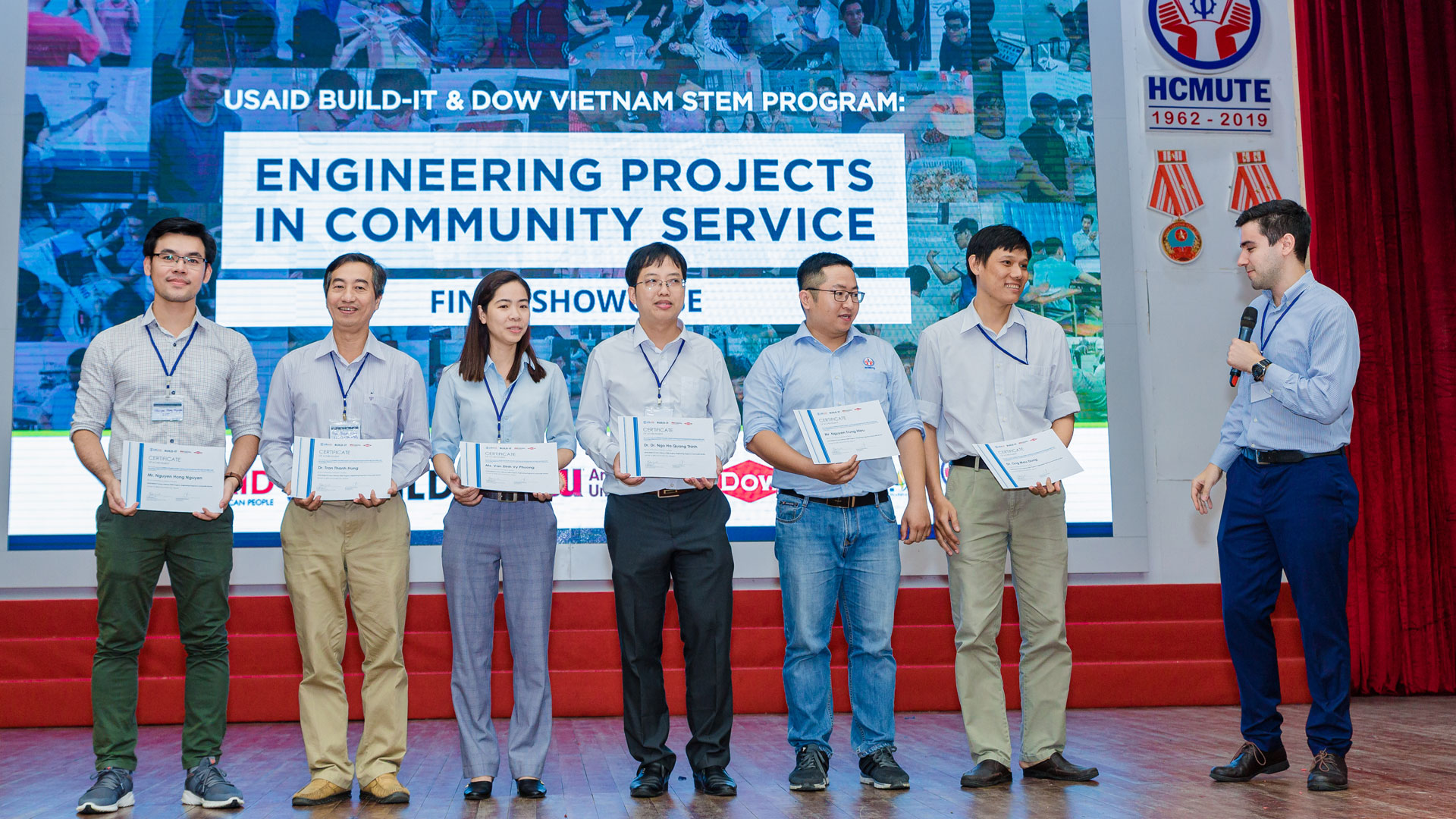
One of the BUILD-IT programs Van Dinh Vy Phuong (pictured third from left) participated in is the Engineering Projects in Community Service program, in which teams work on projects that address local challenges. Her team presented in a final showcase. Photo courtesy of BUILD-IT
BUILD-IT facilitates programs that develop engineering and technical, entrepreneurial, teaching and leadership skills as well as other opportunities for professional growth.
Lan Dai and Phuong took advantage of programs, including Engineering Projects in Community Service, or EPICS, in which participants address local challenges through team-based projects; eProjects that focus on working with an industry partner; and maker to entrepreneur training, which prepares participants to effectively develop entrepreneurial ventures.
Other such programs include master teacher training workshops for innovative educational methods; certified facilitator training to leverage university expertise for the improvement of faculty pedagogy; and industry advisory board best practices workshops and other leadership training.
While these opportunities are not targeted solely at women, BUILD-IT incentivizes women’s participation through all-female sections of the Engineering Projects in Community Service program and various workshops in addition to bringing in female mentors and role models. Currently, 31% of the participants in BUILD-IT’s programs are female.
“We have supported our university partners as they look for opportunities to recruit and mentor women and ensure they feel comfortable,” Wigal says. “We want to make sure that women have the opportunity and the incentive to get involved. Sometimes the biggest obstacle is a lack of motivation and feeling that they can be successful in BUILD-IT and USAID programs.”
Becoming an effective leader
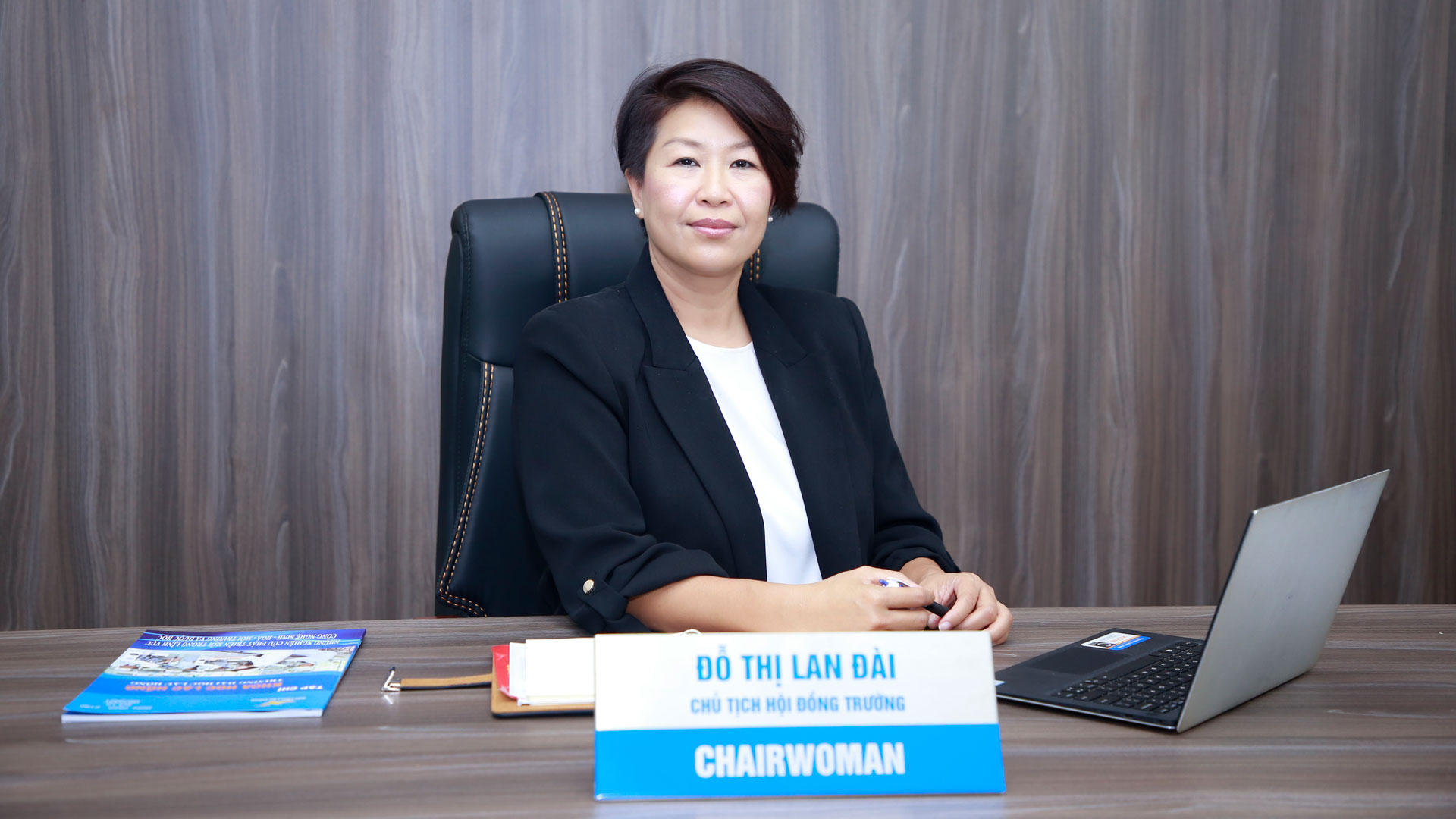
Lan Dai, chair of the Board of Trustees at Lac Hong University. Photo courtesy of BUILD-IT
Lan Dai, who entered the STEM field later in her career, says she has faced a larger ongoing challenge to gain the respect of technical subject matter experts at LHU, a private university focused on applied science. BUILD-IT’s leadership and strategy training helped prepare her for her new role.
As chairwoman, Lan Dai is leading LHU’s Board of Trustees, which advises the university rector and vice rectors. The board — roughly equivalent to a university council or board of regents in the U.S. — oversees the governance of the institution. While the rector is responsible for day-to-day operations, the Board of Trustees manages the institution’s long-term success, ensuring that assets and resources are effectively managed and used.
Through her participation in various BUILD-IT workshops, Lan Dai has gained the organizational skills necessary to run a large and complex university, learned the key performance indicators for driving change and accountability, and discovered the importance of constant improvement and establishing a culture of innovation.
The training Lan Dai receives is helping with her new duties, which include ensuring the university acts according to its mission; reviewing its finances and supporting fundraising and sponsorships; reviewing curriculum, degree programs and how well online programs meet students’ needs; and thinking strategically about the long-term success of LHU.
Attending leadership training was a pivotal moment for Lan Dai.
“The leadership conference was an eye-opening experience for me,” Lan Dai says. “It made me realize that Vietnamese universities have much to do to get to the level that ASU has already attained. That said, it also made me excited about the possibilities for Lac Hong.”
Developing skills for effective education
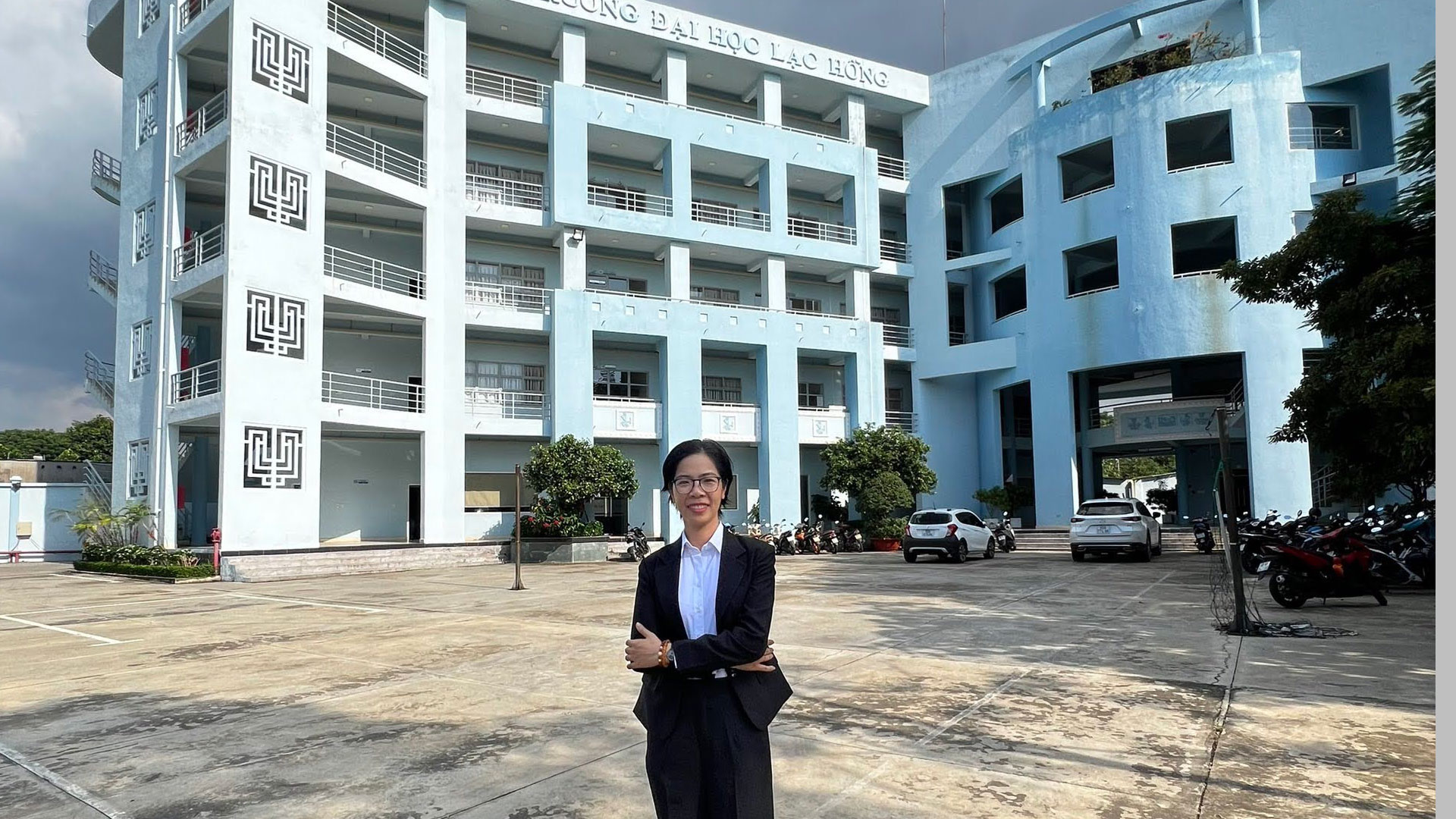
Van Dinh Vy Phuong, dean of the information technology faculty at Lac Hong University, stands in front of the Engineering Building. Photo courtesy of BUILD-IT
Phuong has been participating in BUILD-IT programs since 2017 when she was a lecturer on the faculty of LHU’s information technology program. Over the years, the training has changed her perspectives on education, particularly the importance of active learning models as well as industry and community involvement in curriculum development. She is now actively involved in the university’s efforts to gain Accreditation Board for Engineering and Technology, or ABET, accreditation.
“I have changed a lot in my view about the close connection of teaching content, curriculum and learning outcomes,” Phuong says. “I have a clearer view of management, research and [extracurricular] activities to align the goals of the university and faculty with the [BUILD-IT] training, the demands of businesses and the abilities of the students.”
She has also improved her skills in critical thinking, interpersonal communication, problem-solving, teamwork and taking initiative. Phuong even participated in some training programs more than once, which she says strengthened her confidence in her work and helped her become a leader at LHU.
Now in her role as a dean, Phuong is an academic leader who coordinates LHU’s information technology faculty’s strategic direction and integrates that within the university’s overall strategies. She will also recruit new teaching staff, support the development of course curriculum, manage resources and support for the faculty as well as other duties.
The future of female representation in Vietnamese universities
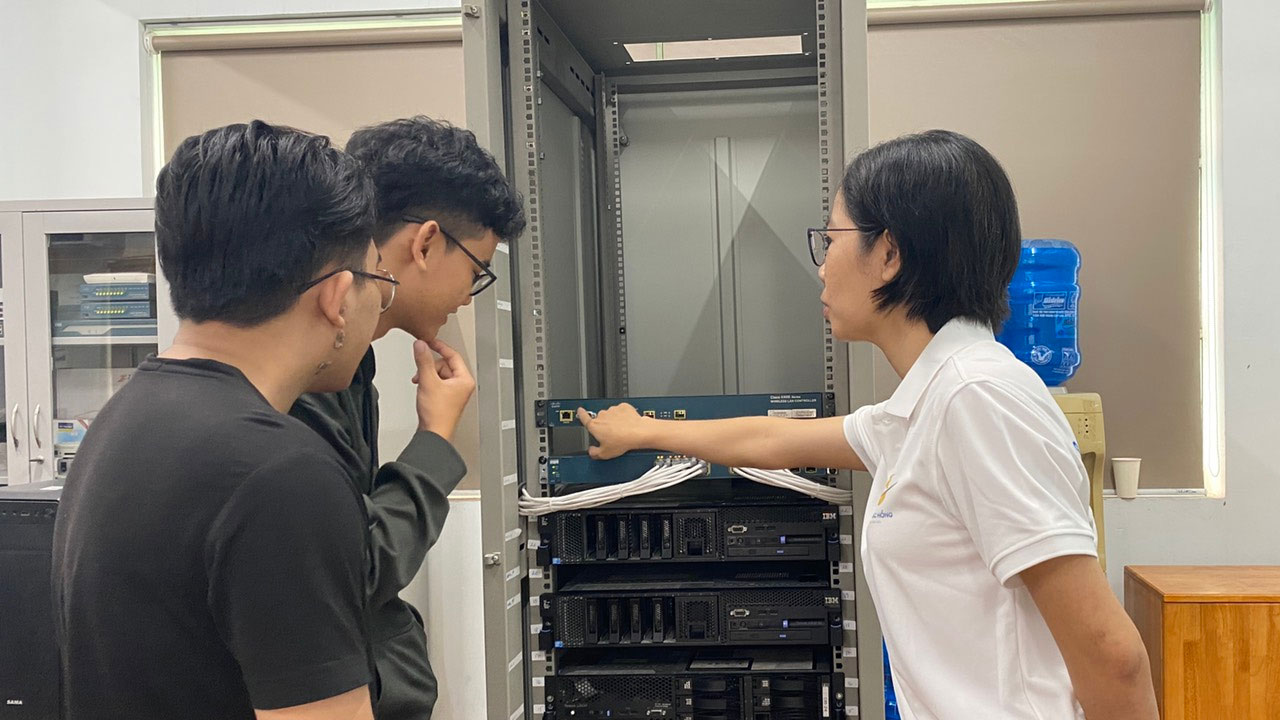
Phuong has gained the confidence to be an advocate for women to succeed in STEM through BUILD-IT opportunities, a challenge she says other women need to overcome to gain recognition in male-dominated STEM fields. Photo courtesy of BUILD-IT
Just as it has aided in Lan Dai and Phuong’s success, BUILD-IT is helping women at more than 15 partner universities across Vietnam rise in the ranks of higher education.
In a 2021 gender efficacy survey conducted by GOEE in which women reported on their confidence in their capabilities in STEM fields, 87% of BUILD-IT participants reported they are somewhat or very prepared to implement leadership strategies, program quality improvement, applied curriculum and faculty development training. This percentage has increased in the past four years.
“As a woman in a leadership position, I was heartened to see that BUILD-IT placed a particular emphasis on promoting women in the STEM fields,” Lan Dai says. “It will be important for the advancement of Vietnam to nurture and promote every one of its bright minds, no matter what gender.”
ASU and programs like BUILD-IT are continuing work to expand the pipeline of female faculty. With role models and advocates like Lan Dai and Phuong leading the way, Wigal is confident more young women will get engaged in STEM fields and take advantage of the opportunities that are available, including those from GOEE and the Fulton Schools.
For Phuong, building her confidence was the biggest hurdle to becoming the advocate she is today.
“I find the biggest challenge to overcome for women to thrive and succeed in STEM is self-confidence,” Phuong says. “I must believe in my ability, believe in my way of doing things and be brave enough to have the necessary arguments to express my point.”
She says changing attitudes to foster acceptance that women can do more than assist others requires women to “be the one to act.”
“Only then,” Phuong says, “will others, especially men, recognize and re-evaluate the role and position of women in the science-oriented and male-dominated environment of STEM.”



































